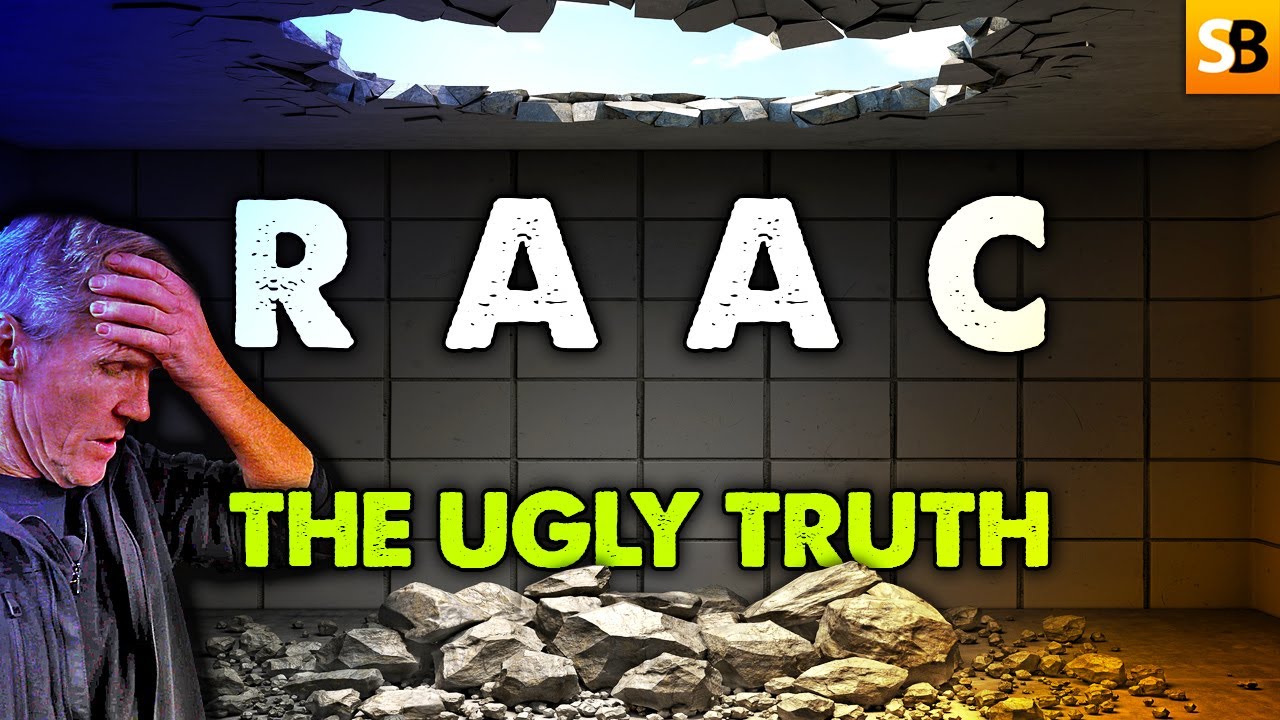Some good information imo.
That was an interesting & informative video that was not nearly as terrible as the thumbnail might suggest.
Not a fan of current trends in YouTube thumbnails.
I have worked in the building trade as a much younger person in the 80’s. I have a fair grasp of physics and chemistry. I consider myself to be halfway intelligent around most issues with buildings. I never built anything with RAAC.
I actually found this information much worse than the opinion I had before it. I wasn’t aware of the sliding due to heat, or the extra stresses caused by bad fitment in the first place. I only found out last night that water makes the material crumbly (literally like the crumble on apple crumble). This really is a can of worms. I can only see this causing an accident. I am hoping they have removed all from working under this type of building material.
I only found out last night that water makes the material crumbly (literally like the crumble on apple crumble).
I don’t think that the issue is actually primarily the concrete weakening when exposed to water – which does apparently happen – but rather that the rebar internal to the concrete rusts.
You’ll notice that nobody is complaining about “AAC” – aerated autoclaved concrete – but specifically reinforced aerated autoclaved concrete. The difference is the use of the rebar.
Granted, RAAC is probably used in places where structural strength is more important – I don’t know if a non-reinforced wall crumbling is as bad as a ceiling that’s above someone’s head.
The speaker in the video highlighted a new angle that I haven’t seen before that I think is notable – that specifically with RAAC, it’s hard to tell if the rebar has been suffering from rust internally, because it apparently doesn’t split the way regular reinforced concrete does.
Combine that with the fact that RAAC is particularly prone to rust damage to the rebar, and you’ve got a situation that theoretically shouldn’t come up if the substance is protected from water, but if it does happen is prone to problems, is hard to diagnose, and has a catastrophic failure mode.
I am not an expert.
The guy in the video explained that the bar in the collapsed school was not rusted. The concrete had weakened or it was placed too close to the edge. This resulted in the bar being bent over at the ends. It seems the concrete is prone to failure in a few different ways. All of which stem from water damage from leaking above.
Sorry but that is not the interpretation I got.
The rusting of the rebar causes expansion. Because aac has the air to absorbed that expansion. The rebar done not have the compressive protection of the concrete to prevent the bend. With non aerated concrete. When this happens it is obvious as the concrete collapses rather then moves aside.
The lack of compressive resistance above the rebar is what allowed it to bent.
Not a fan of current trends in YouTube thumbnails.
There is a FF extension called DeArrow:
The goal of DeArrow is to make titles accurate and reduce sensationalism.
Titles can be any arbitrary text. Thumbnails are screenshots from specific timestamps in the video. These are user submitted and voted on.
Great video, thanks for sharing!
I was thinking this early on on the video and have been thinking this for years so glad he picked up on this - wtf do we use flat roofs in this country!!!
Some great other points about having a standard design but can’t see it getting past the NIMBYs. Tbh, buildings have got very similar looking anyway and at this point, we’ve really got to question why we’re allowing our children to spend several hours a day in buildings which weren’t designed to last this long and has asbestos everywhere.
I really liked the idea of a flat design for schools as well. It makes a lot of sense.
has asbestos everywhere.
That bit we understand. Moving asbestos is what makes it dangerous.
In all places. Asbestos is only recommended to be removed if it is damaged. As the act of removing or damage creates the dust that kills the workers.
As a idea. I live in a council house full of the shit. The really did use it for everything in the 60s.
When I moved in I was given a list of thing not to touch. (All is buried in the structure. So only knocking down walls or ceilings would cause any inssue).
15:54 - 16:59; the political angle!
Found the video quite informative; the guy knows how to deliver an engaging lecture.
For all the guy is on my subscription watch list, I actually got the link from searching Youtube on information on RAAC. I have watched a few of his videos on other stuff. Hasn’t disappointed me yet.





